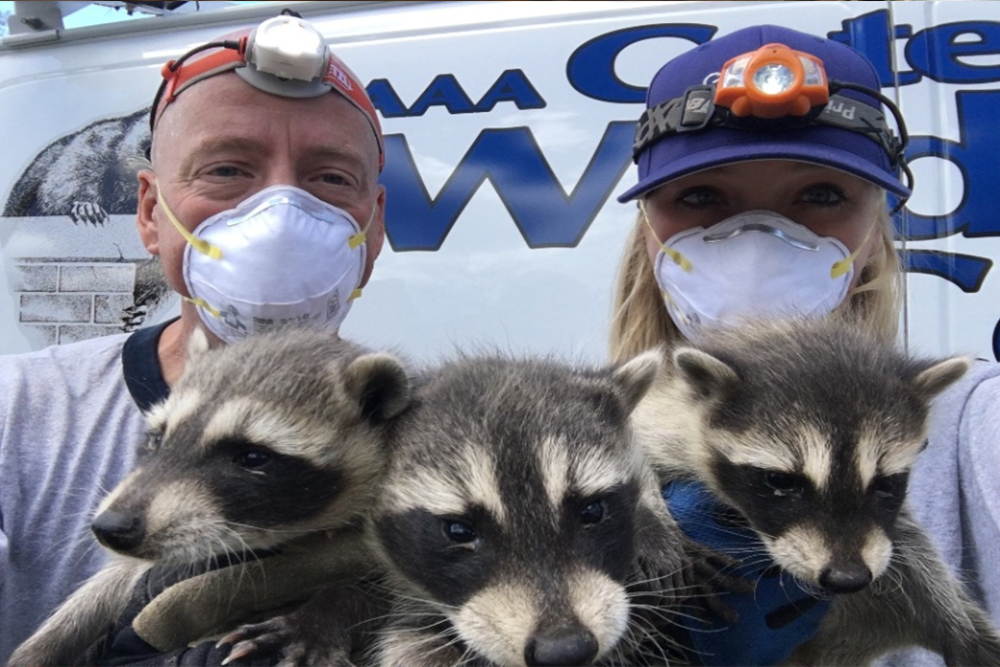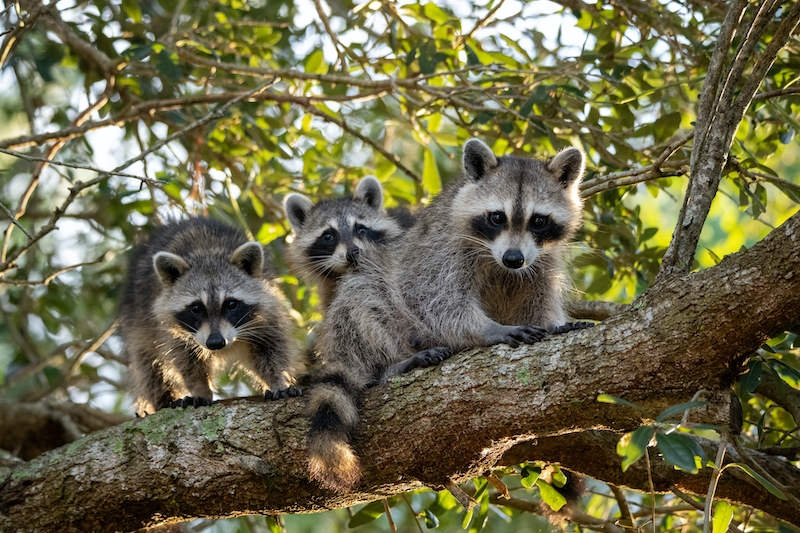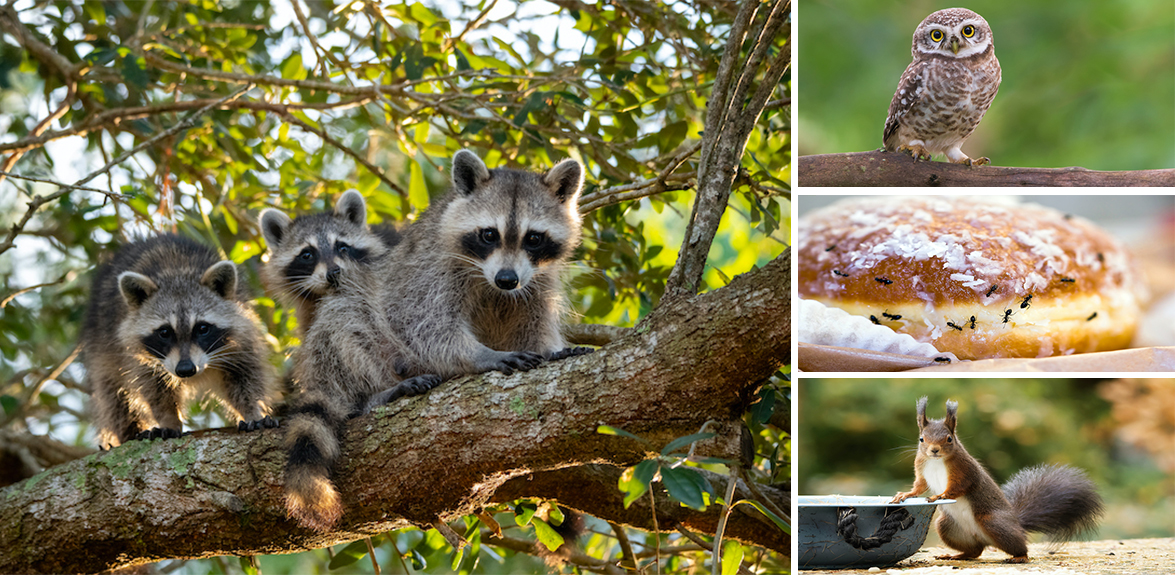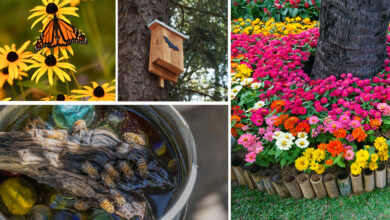 With the warmer weather here, unwanted guests may be showing up in your house—and we are not talking about family members. Pests and critters may have moved in, leaving you scrambling to find a solution to rid your home and garden of everything from ants and aphids to rats and mice or squirrels and racoons.
With the warmer weather here, unwanted guests may be showing up in your house—and we are not talking about family members. Pests and critters may have moved in, leaving you scrambling to find a solution to rid your home and garden of everything from ants and aphids to rats and mice or squirrels and racoons.
However, before heading to the store to purchase pesticides or poison to kill your unwanted pests, first consider the impact the chemicals can have on the greater ecosystem, of which your home is just one part.

Doing Business Differently
Brad Gates of Gates’ Wildlife Control has over 35 years of experience dealing with unwanted critters. He has an entirely different and far more humane approach to dealing with unwanted animals in your home. It started when he first got into the business, when he saw how other companies would use chemicals, including formaldehyde, to deal with unwanted animals—formaldehyde, when in aerosol form, burns the mucous membranes.
“I had a brief stint with a company that was using this as a method for removal, and I was just appalled by it,” said Gates. “At that time, I decided that I was going to take an approach in solving wildlife problems…[to] minimize the stress put on animals and cause literally zero harm to them. So we took on a more hands-on approach, where we physically go into the space they’re living. We take the babies from the attic, either use the babies to lure the mother out of the attic, or use a one-way door, and the babies are put in a heated release box on the roof by the point of entry.”

Other Critters Move In
Many clients expressed surprise and concern when learning he would not remove and release the animal to another area. According to Gates, not only is that bad for the animal—it likely will not survive relocation—but it won’t actually stop other animals from taking its place. He comments that for every animal removed, another two will take its place.
“Mother Nature controls population density with the ability to find an abundance of food and shelter. And our company works with Mother Nature and not against her, meaning that we don’t want to disturb the balance within a given area,” said Gates.
Having a predator invade their den in this manner is enough to make most animals want to take their young away.
“They’re very maternal, and given the opportunity to get the babies back, they will certainly look to do that,” comments Gates. Many animals often have a secondary den nearby and will retreat with their young to that other den.

Working With Environment
Gates stresses that it is better to work with the environment when dealing with unwanted critters. When called in to help deal with unwanted pests, he will often walk the property with the homeowners, looking for conditions that are ideal for nests or dens or for entrances to the home, like cracks or holes. By dealing with these things, you will be more likely to permanently remove unwanted pests.
Unfortunately, these methods take longer when people often want instant results – like with bugs or rodents. Gates comments about clients who will try to deal with mice by using poison.
“They seem to be doing it every two or three months,” he said. “But then we’d walk around the house, and we see where they’re coming in. Once they close that up, then there’s no longer this poison being put into the environment by this mouse that has been half-poisoned and then walks outside, and the cat or the dog comes across it. I mean, it may not be enough to kill them, but it can certainly make them sick.”

Poisons Can Impact More that the Target
Pesticides, herbicides, and poisons can impact more than just the critters it is being used to eliminate. For example, when a mouse is trying to take up residence in a home, the homeowner might use poison to get rid of it, but it could then be caught and eaten by an owl, who will then die from the poison. When certain sprays are used to kill insects like aphids, that same spray can also kill the bugs that prey on aphids as well.
Pesticides can also run off into water sources, causing significant harm to local wildlife, and herbicides can remove the nesting sites, food sources, and cover needed by other animals. As frustrating as mosquitoes and other biting insects are, spraying to kill them can be very detrimental. They are a significant food source for many types of birds, fish, and bats. The sprays can also affect pollinator insects.
There are alternate ways homeowners can work with their environment to prevent animals and bugs from invading. Sealing cracks and holes can help keep rodents out, and planting certain plants can help discourage certain “bad” insects and encourage “good” ones. While they may take more time, they are effective and will help protect our environment.
Learn more about AAA Gates’ Wildlife Control approach here. To read the company’s blog as they recount stories, and share tips to keep unwanted guests out of your house visit here.










